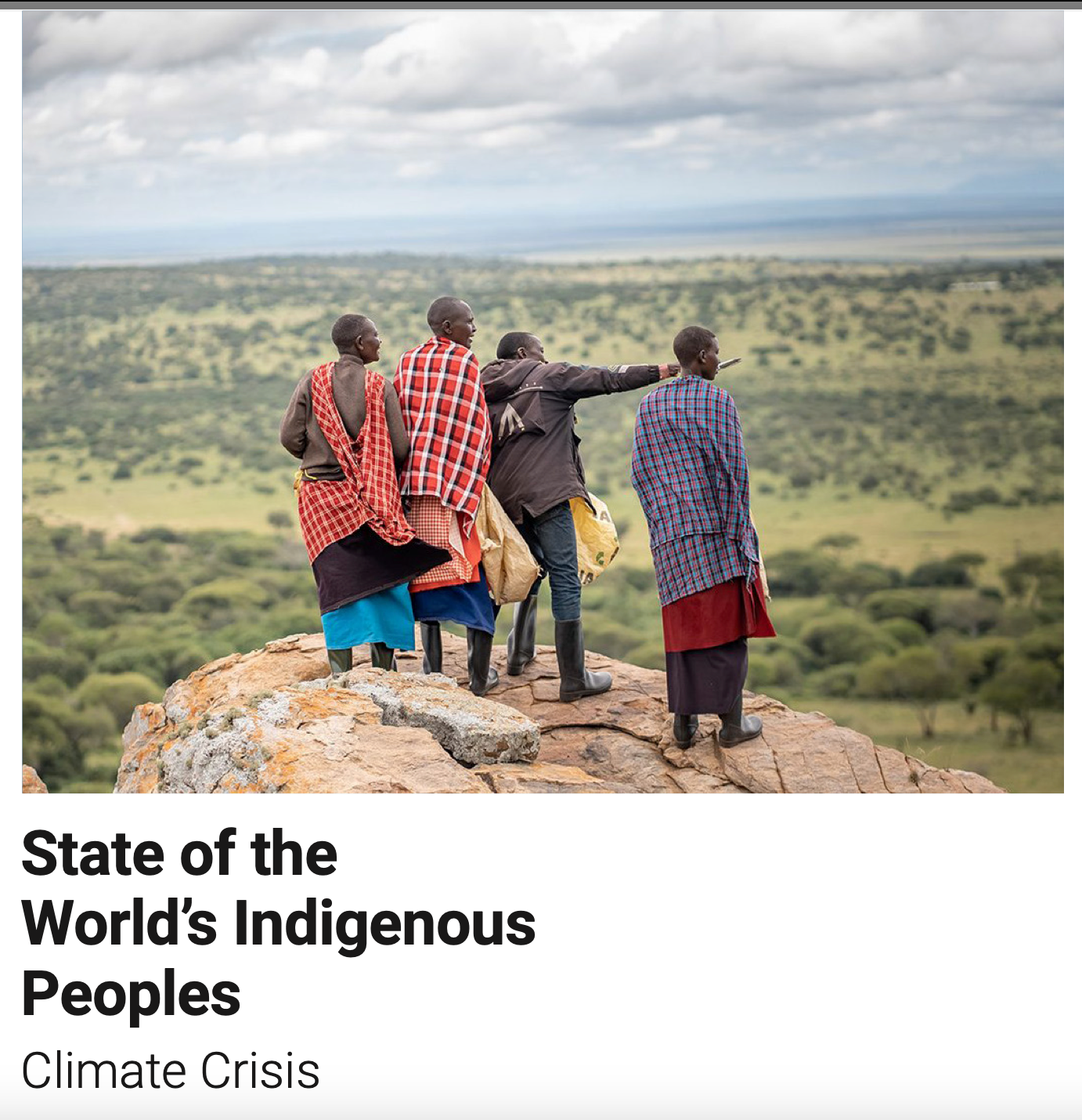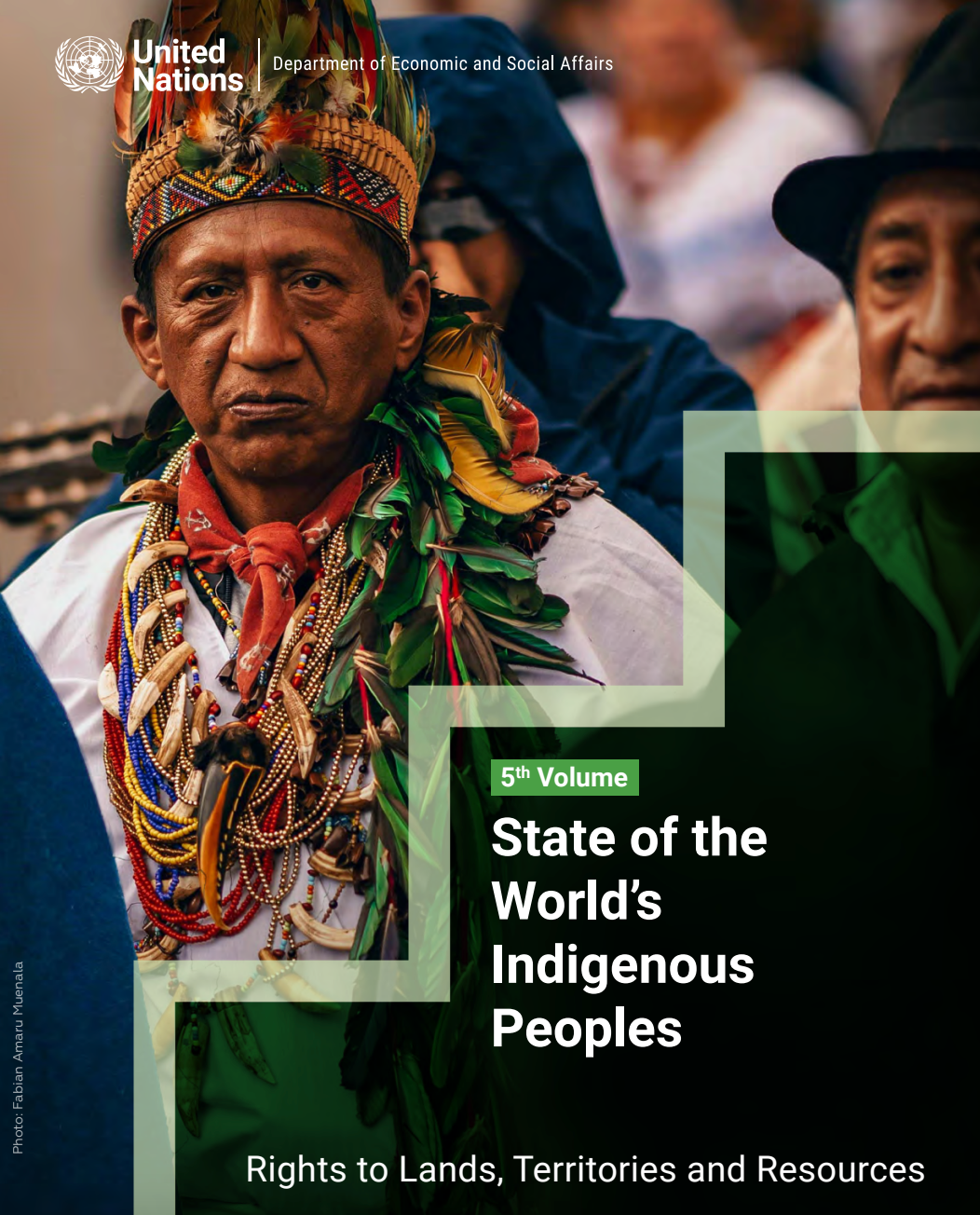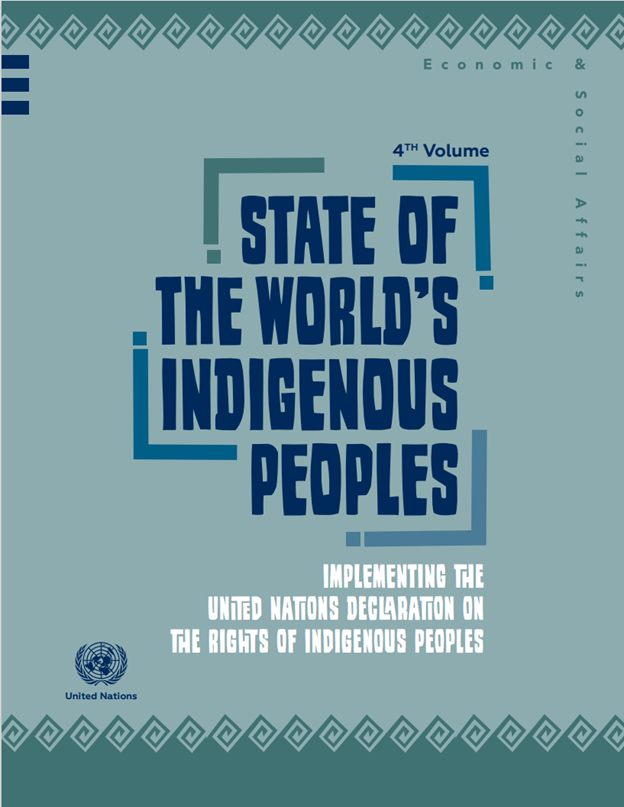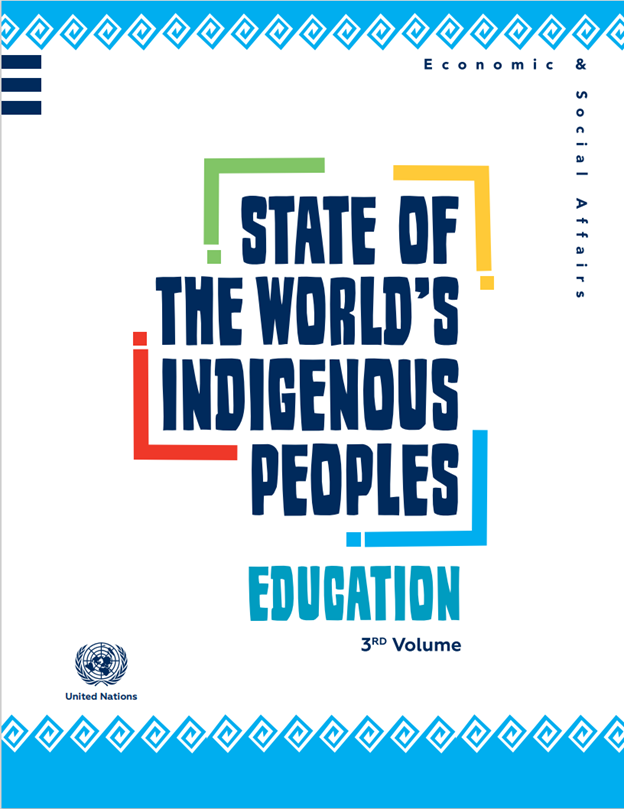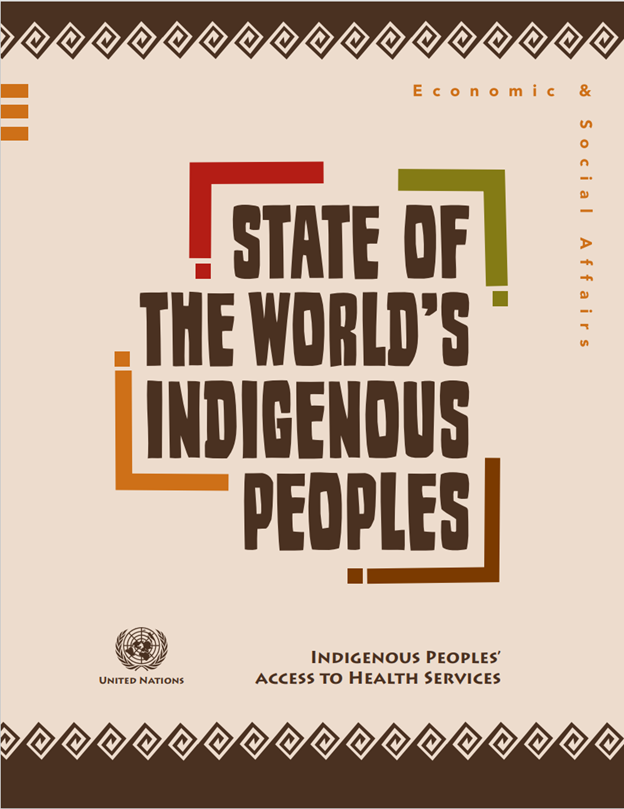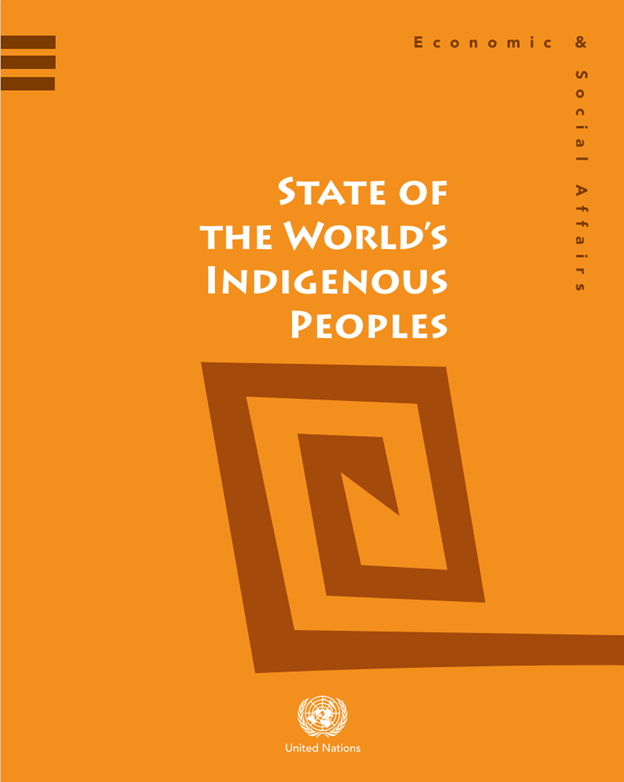Publications
Displaying 1 - 6 of 6
Flagship Reports |
The sixth edition of the State of the World's Indigenous Peoples focuses on Climate Crisis. It focuses on the vital role of Indigenous peoples in addressing the impacts of climate change. Although Indigenous Peoples account for only around 5 per cent of the world’s population, they effectively manage and protect an estimated 80 per cent of the Earth’s biodiversity and about 40 per cent of protected areas and ecologically intact landscapes. Since Indigenous Peoples first came to the United Nations, they have emphasized the fundamental importance of their relationship with their lands, territories and resources, which hold a deep cultural and spiritual significance within their societies.This…
Flagship Reports |
Indigenous peoples’ relationship to their lands, territories and resources is at the heart of their identity, well-being and culture. Preservation of the environment, transmitted through traditional knowledge passed down through generations, is at the centre of their existence. As the world is increasingly recognizing the negative impacts of climate change and environmental degradation on health, food security and overall peace and security, the importance of indigenous knowledge and territorial rights is beginning to be more fully acknowledged by society at large.
The 2030 Agenda for Sustainable Development offers further opportunities to promote the rights of indigenous peoples to lands…
Flagship Reports |
On 13 September 2007, the United Nations General Assembly adopted the United Nations Declaration on the Rights of Indigenous Peoples. The adoption of the Declaration marked the culmination of decades of struggle among indigenous peoples for a universal framework establishing minimum standards to ensure the survival, dignity and well-being of the indigenous peoples of the world.
Over a period of more than 20 years, indigenous peoples and Member States worked together to draft the Declaration, setting a precedent for cooperation and partnership between indigenous peoples and Member States. This collaboration has become an established practice and captures the principle of nothing about us…
Flagship Reports |
Recognizing the gaps in analytical research on the situation of indigenous peoples, the Permanent Forum on Indigenous Issues called for a report on the state of the world’s indigenous peoples. The Forum believed that this report will help dispel the myths and inconsistencies about indigenous peoples, and demonstrate their unique identity and traditions, as contributions to the world’s bio-cultural diversity. In response, DESA issued the State of the World’s Indigenous Peoples in 2009. This was the first global, authoritative report by the UN system to focus on indigenous peoples, with the 2014 second edition focusing on Indigenous Peoples’ Access to Health.
The third edition has been…
Flagship Reports |
Over the past two decades, international efforts have been made to improve the rights of indigenous peoples, to bring awareness to their issues, including their engagement in developing policy and programmes in order to improve their livelihoods.
In the First Decade of the World’s Indigenous People (1995-2004) the United Nations created the United Nations Permanent Forum on Indigenous Issues as well as the Special Rapporteur on the rights of indigenous peoples. During the Second Decade of the World’s Indigenous People (2005-2015), there have been further initiatives such as the creation of Expert Mechanism on the Rights of Indigenous Peoples.
The adoption of the United Nations Declaration…
Flagship Reports |
Although the state of the world’s indigenous peoples is alarming, there is some cause for optimism. The international community increasingly recognizes indigenous peoples’ human rights, most prominently evidenced by the UN Declaration on the Rights of Indigenous Peoples. Indigenous peoples themselves continue to organize for the promotion of their rights. They are the stewards of some of the world’s most biologically diverse areas and their traditional knowledge about the biodiversity of these areas is invaluable. As the effects of climate change are becoming clearer, it is increasingly evident that indigenous peoples must play a central role in developing adaptation and mitigation efforts…
 Welcome to the United Nations
Welcome to the United Nations
